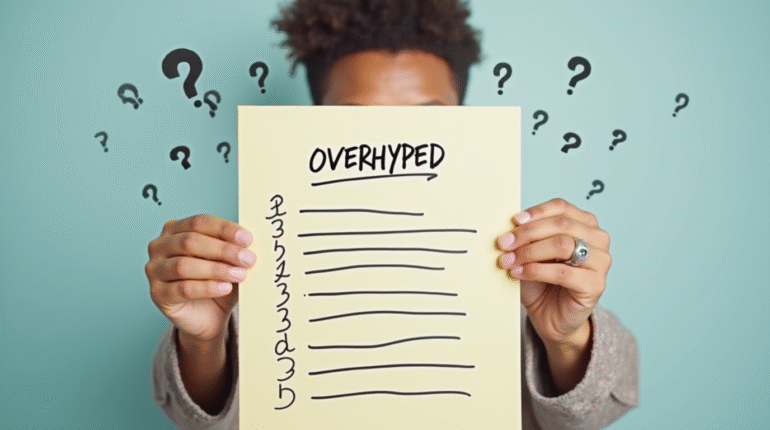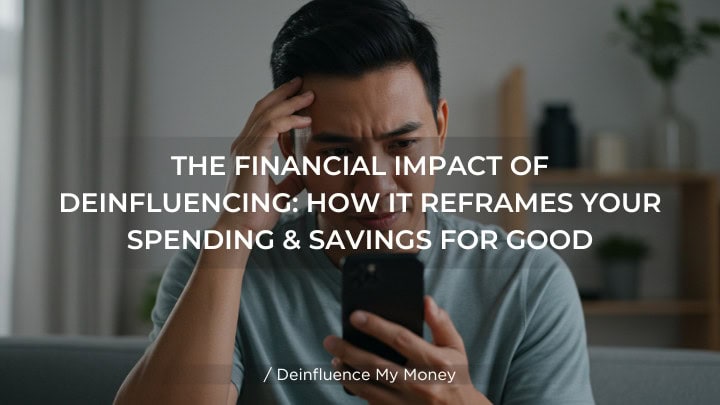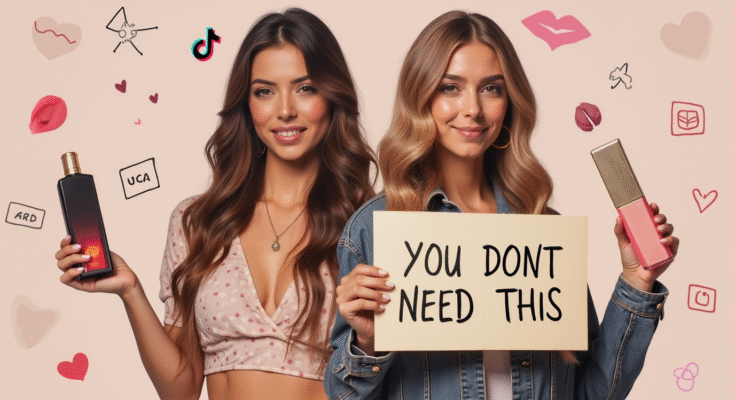Hype or No Hype
The world has been under the spell of influencers for more than 10 years, allowing them to dictate choices in makeup, fashion, fitness, technology, and lifestyle. However, something remarkable started happening in early 2023: “deinfluencing.” Rather than encouraging their followers to buy more products, content creators started advising on what not to buy, and more importantly, why.
From whisper to movement. Is this where social media hits its wall of consumerism?
What is Deinfluencing?

Deinfluencing is the social media trend in which creators tell their followers not to buy certain products, often deeming a shout-out to:
- 📈Overpriced items
- 🔄Products that fail to meet the hype
- 🗑Wasteful or unsustainable trends
- 😷Influencer dishonesty or sponsorship-driven recommendations
It flips the script on influencer culture towards promoting transparency, frugality, and ethical consumption.
Like that popular TikTok example, which consisted of a creator breaking down the ‘’ $600 Dyson Airwrap ’ and explaining why it’s not worth the money, providing cheaper or DIY alternatives that do the same job.’
Why Is This Happening?
No reduction in influence can be attributed to the fast-changing modern world. Everything is pinpointed to a few economic and cultural developments
1. Economic Pressure
Economic Pressure – Inflation, increasing costs of living, and financial strains after the pandemic make it less likely that people will invest in items they find trending now but would later regret. The pain of acquiring ‘what’s hot’ produces debt, dissatisfaction, and clutter for many. Consumer Fatigue
2. Consumer Fatigue

Everyone is overwhelmed with affiliate links and discount codes at every scroll, and people are emotionally worn out by each sale, leading to jaded responses even towards influencer recommendations.
3. Sustainability Awareness
Growing concerns about the climate crisis and waste culture have led Gen Z and Millennials in particular to rethink their buying habits. Deinfluencing supports values like minimalism, ethical sourcing, and anti-overconsumption.
4. Mental Health Impacts
Constant exposure to hyper-perfect lifestyles and never-ending product launches causes anxiety, comparison, and low self-worth. Deinfluencing helps deconstruct the illusion of perfection and encourages contentment with less.
How It’s Changing Online Culture
Deinfluencing is more than just “anti-hauls” or product criticisms—it’s a reclaiming of trust and integrity in digital spaces. It’s giving voice to consumers who are saying:
- “I don’t need more to be happy.”
- “I won’t be manipulated by aesthetics.”
- “Not every recommendation is worth it.”
Even influencers themselves are reflecting:
“I used to share Amazon links for everything in my room. Now I tell my followers they don’t need half of it. It’s freeing.” —@slowlivinglina, TikTok
This shift aligns with other digital movements, like “deinfluencing skincare routines,” “slow fashion,” and the rise of secondhand shopping hauls on TikTok and Instagram.

Who’s Being Called Out?
The de-influencing wave has put pressure on:
- Luxury brands like Chanel and Dior for selling products with mediocre quality.
- Tech gadgets that are overpriced with minimal upgrades.
- Skincare lines are filled with “miracle” claims but lack science.
- Influencers themselves, particularly those who accept sponsorships for products they don’t use or believe in.

Is Deinfluencing Here to Stay?
It’s unlikely that influencer culture will disappear. But deinfluencing represents a maturing of the online consumer.
Rather than blindly trusting content creators, audiences are:
- Asking harder questions
- Fact-checking claims
- Valuing transparency and authenticity over trends
Some predict that “value-first influencing” will replace the current sales-driven model, where creators earn trust by giving honest, nuanced opinions—even when they’re unpopular.



